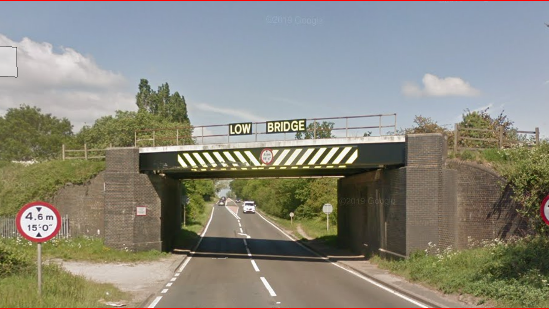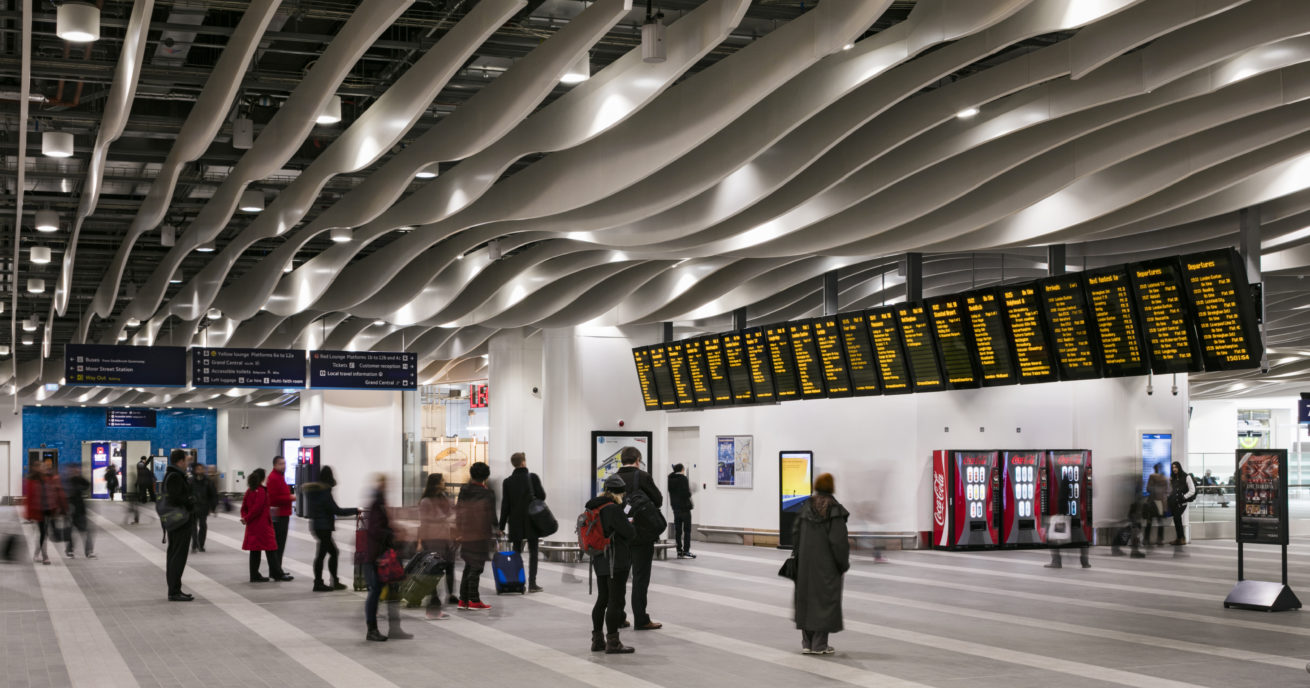Did you know London Paddington dates back further than the Isambard Kingdom Brunel-designed station we see today?
The original, temporary Paddington railway station opened on 4 June 1838. Brunel had to abandon his original plans for the station when the Great Western Railway ordered him to economise due to the soaring costs of building the mainline.
The temporary building used the arches of Bishop’s Bridge Road as a façade and to provide passenger facilities.
His grand terminus that stands today didn’t open until 1854. The Crystal Palace for the Great Exhibition of 1851 deeply influenced his design – evident in his use of wrought iron and glass in the three-span roof at Paddington.
At the time, Paddington had the largest train shed roof in the world with a main span (102’ 6”) and two smaller ones to the north (70’) and south (68’).
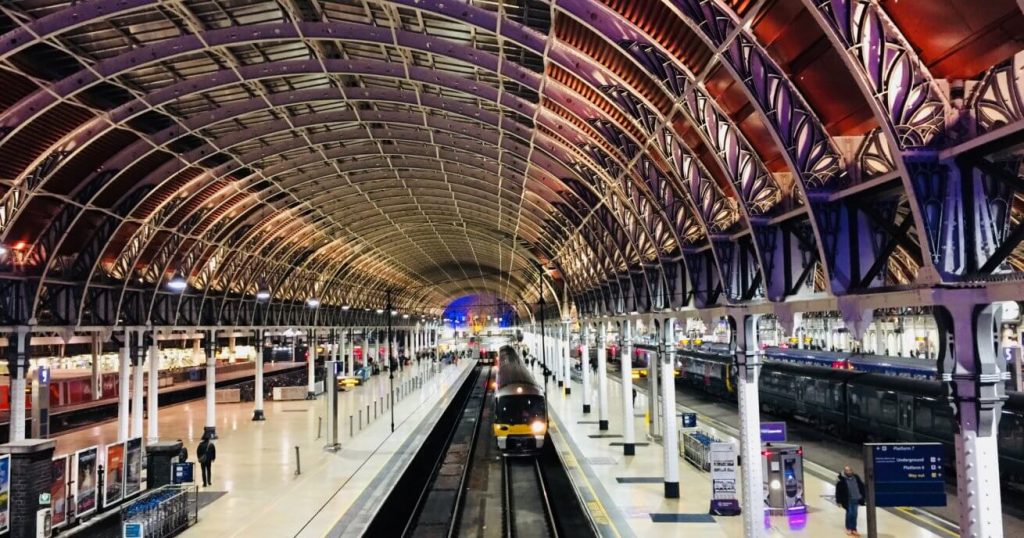
Upgrades
Major changes during the 20th century included the building of ‘span four’ between 1913 and 1916, which increased the number of platforms at the station and today covers platforms nine to 16. It includes architectural features to match Brunel’s original roof as closely as possible.
Paddington underwent an extensive refurbishment in the 1990s, which included the replacement of the glass in Brunel’s original roof with poly-carbonate glazing panels.
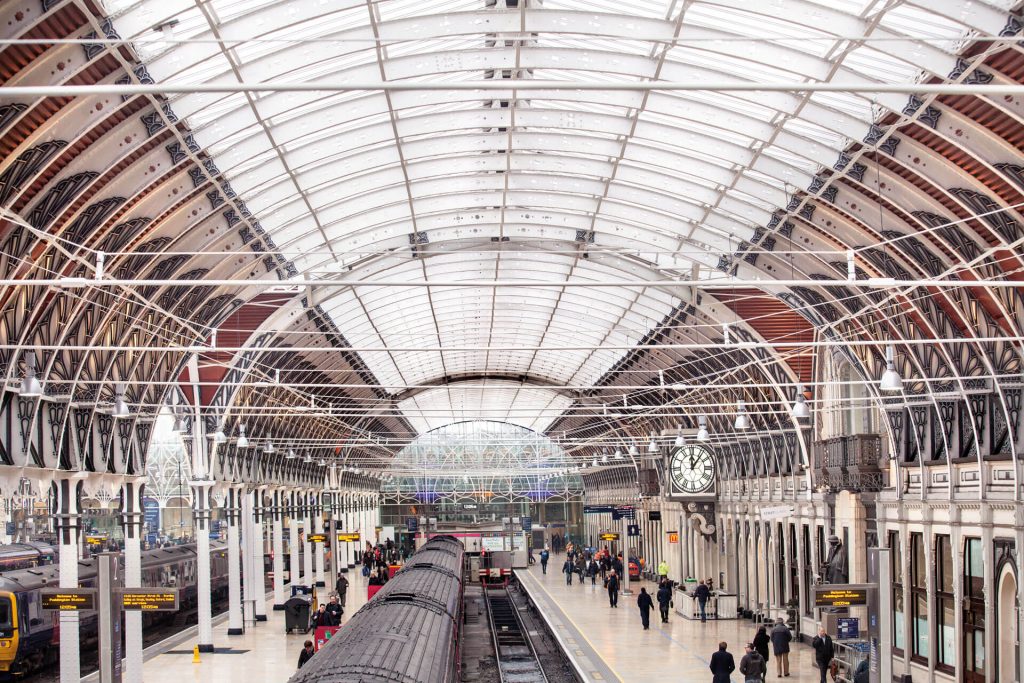
How we’re improving Paddington for passengers
We’re improving the passenger experience at our 20 managed stations across Britain. At Paddington, visitors to the station have benefitted from the introduction of a free water fountain, free use of the toilets and improved way-finding to help passengers navigate the station.
As part of a £1 million investment, we’re installing new seating in the Lawn area and charging points so passengers can keep laptops and devices topped up.
Meanwhile, electrification from London Paddington to Swindon, Bristol Parkway and to Newbury has improved reliability and facilitated the introduction of GWR’s electric Intercity Express Trains.
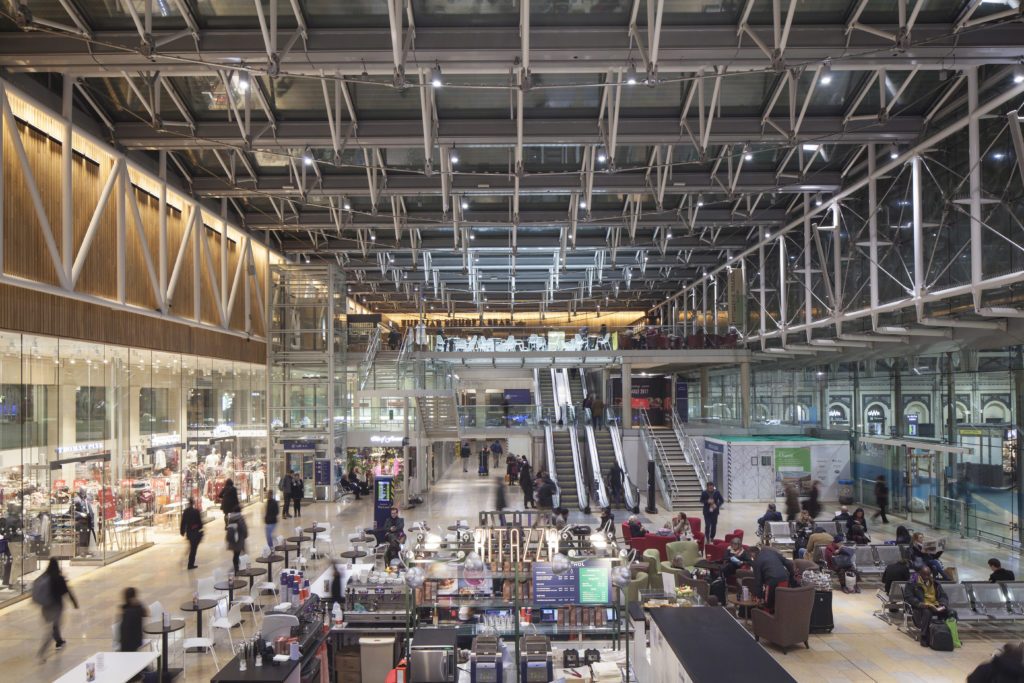
Find out more about how we’re improving our stations for passengers.
